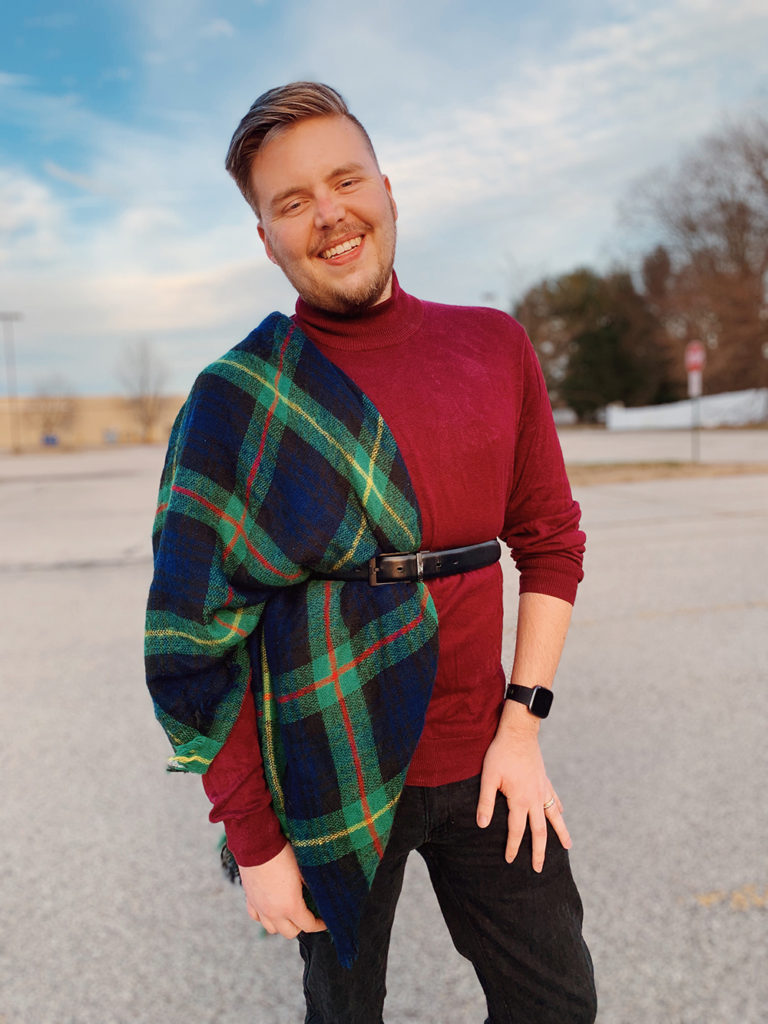The Edward-Readicker-Henderson Travel Classics Memorial Scholarship
for New and Emerging Travel Writers

2021 Winner: Zac Jones-Gomez
Zac Jones-Gómez, the 2021 Edward Readicker-Henderson Travel Classics Memorial Scholarship Winner, is a soon-to-be-published writer based in Louisville, KY. A graduate of the University of Kentucky, he is passionate about telling overlooked stories of marginalized communities in America’s Heartland. When not working on a manuscript or learning how to pitch, he enjoys hiking, planning his next travel adventure, studying too many languages at once, and making the Eurovision Song Contest a year-round event.
Contestants were asked to write a 750-word essay about their home town.
Zac’s Award-Winning Essay:
More than a barrel, more than a bet. Louisville’s identity is all its own.
It’s the kind of 6 o’clock that looks like 10 o’clock when a friend and I exit the steamy interior of a Vietnamese restaurant into the cold night air. The kind of place where the cramped space between bustling tables matches the cramped feeling when you stand up and realize you’ve eaten more than your fill. We are glad for a breath.
At the other end of the shopping center, the empty windows of a mosque that was once a bargain grocery store watch us cross the parking lot to an equally crowded coffee shop. There, a warm blast of spiced air hits us in the face as we enter. All eyes are trained on a big screen TV in the corner, where a soccer game is playing. My friend and I order turmeric lattes to keep us warm on the walk home, as cheers erupt behind us in the small Somalian café.
Not a drop of bourbon to be found. Nary a horse trot can be heard. But this is Louisville.
At least for those in the know.
Where the Ohio River can almost taste the end of its journey; in the middle of the land of country music, right as it bleeds into the historical realm of American steel; slightly off-center between the Gateway to the West and the federal government; that is where you find Louisville, Kentucky.
Anyone with a working knowledge of the US can tell you what you’ll find here: Bourbon, horses, and fried chicken. Three industries that put the state on the map and are keeping it on life support as the yesteryear titans of coal and tobacco fade away and leave devastation in their wake.
What visitors and outsiders don’t often realize is that its history as a major river port and close proximity to other Midwestern cities make it one of the most quietly diverse places in the country. Cultures, ideals, cuisines, and people converged on a shipping town near the Falls of the Ohio, and never left. That’s the fabric that Louisville is woven from.
The Bourbon Trail – a much-needed and welcomed attraction for the city and the state – takes you along picturesque countryside and gritty downtown distilleries owned primarily by people whose families have lived in the area for generations. But taking a step off the path opens your eyes to a wealth of cultural opportunity.
When I think of Louisville, I think of the Ugandan woman who is a staple at baseball games, selling cookies from a basket on her head. I think of the community of Cubans who came together during the protests on the island to show solidarity from hundreds of miles away. I think of the East African farmers who till an abandoned plot of land in the middle of their neighborhood and sell the fruits of their labor at market.
Growing up, it felt like Louisville’s position in the middle of everything meant that it had nothing. No Grand Ole Opry, no Rock & Roll Hall of Fame. No arch, no picturesque monuments. Not even a proper beach to soak up a breeze.
And so, I moved away as soon as possible to breathe air that wasn’t from a valley. I needed to see cliffs, to feel true cold and true heat. I needed to move and travel and find out what it felt like to live life in an extreme sort of place, on the edge of where the great stride of mankind and the wild breath of nature meet.
It was only when I returned as an adult that I learned to see our centrality as our strength. Our history – the painful and the welcoming, the bright and the dark periods – helped us become who we are today. The pull of the Bluegrass is as strong as a racehorse, whether you are running from fear or towards prosperity. If you trust yourself to let go of the reins, you’ll find yourself here, in the middle.
So no, Louisville doesn’t sit at the extremes of anything. But perhaps it is better, after all, to be in the middle of everything.

